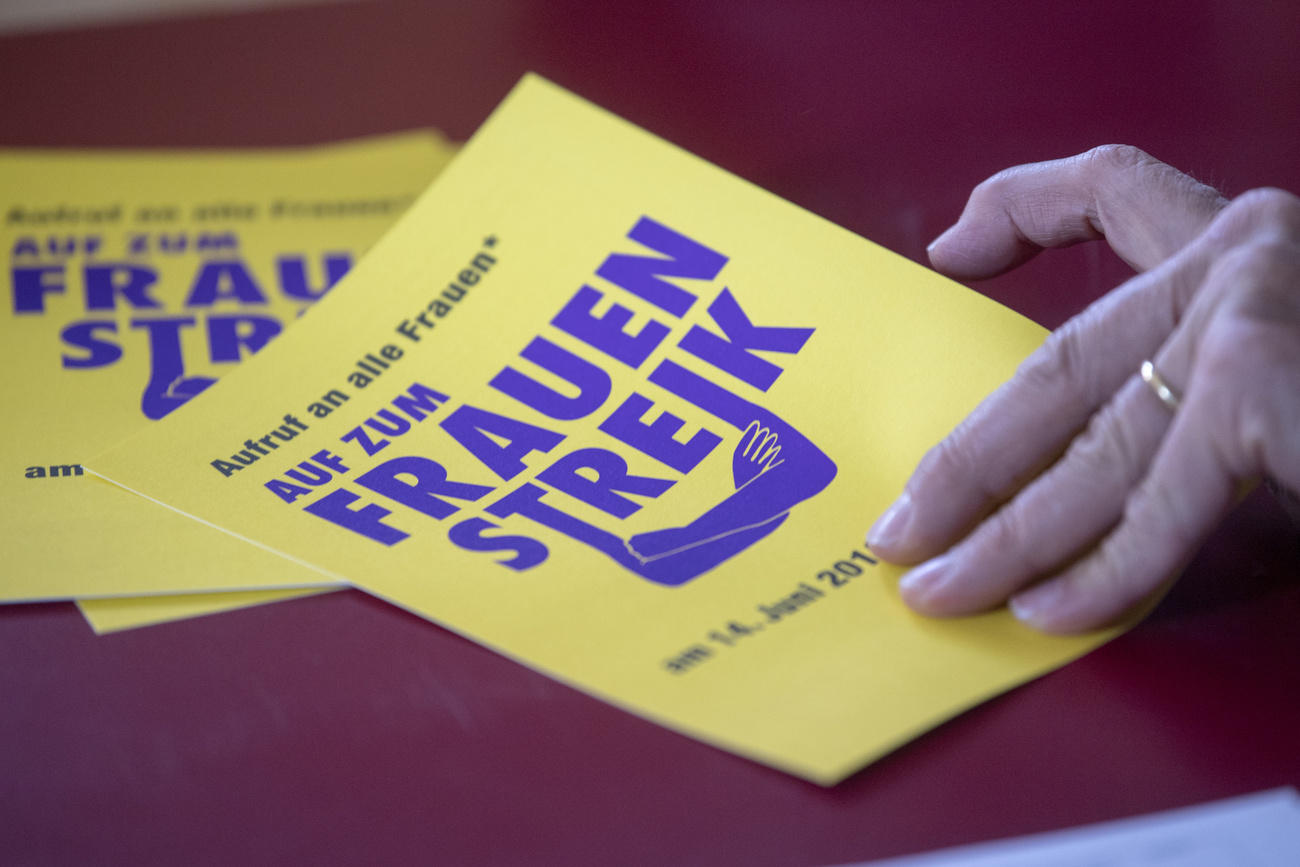
Organisers outline plans for nationwide women’s strike

Plans are shaping up for the nationwide women's strike scheduled for June 14. Labour rights groups in Bern and Fribourg have presented their respective programmes for the day of protest.
The Bern branches of the labour unions Unia and VPOD/SSP outlined their plans for the June 14 strike in the capital, where everything will “come to a standstill”, they said on Tuesday. Women will be advised to leave their workplaces and make themselves visible “with lots of noise”.
A demonstration and rally are planned for 3pm on the square in front of the Swiss parliament building.
The organisers are calling on participants and supporters to “colour Bern violet” with the clothes they wear or by carrying violet flags.
The Fribourg organisers are also expecting a big turn-out on June 14. The well-known Georges-Python Square in Fribourg will be renamed the Georgette-Pythone Square and act as the focal point for the rally and party, the Fribourg collective told reporters on Tuesday.
“Everyone will be welcome in Fribourg”, they said, with an artistic programme, stands, children’s nursery and speeches.
Rallies are also being planned in other parts of the country.
Why strike?
Stefanie von Cranach, from the trade union Unia Bern, told reporters on Tuesday that women are ready to fight for change. There is a long list of reasons motivating people to take part in the strike, she said. These range from unequal wages to pressures on part-time employees, the burden of household work, and sexual violence.
Catherine Friedli, secretary of the VPOD/SSP union, says that unfair working conditions is an important reason people want to strike.
“Despite the introduction of the constitutional article on equality between men and women in 1981 and the equality law, which is still non-binding, women’s salaries are still about 20% lower than men’s in the private sector and 16% lower in the public sector,” she said.
The date of the strike, June 14, is of particular significance in the fight for gender equality in Switzerland. On that date in 1981, Swiss citizens voted to enshrine gender equality into the constitution. Then on June 14, 1991, 500,000 women, led by unions, stopped working in Switzerland in protest at the lack of progress on equality.

In compliance with the JTI standards
More: SWI swissinfo.ch certified by the Journalism Trust Initiative

























You can find an overview of ongoing debates with our journalists here . Please join us!
If you want to start a conversation about a topic raised in this article or want to report factual errors, email us at english@swissinfo.ch.